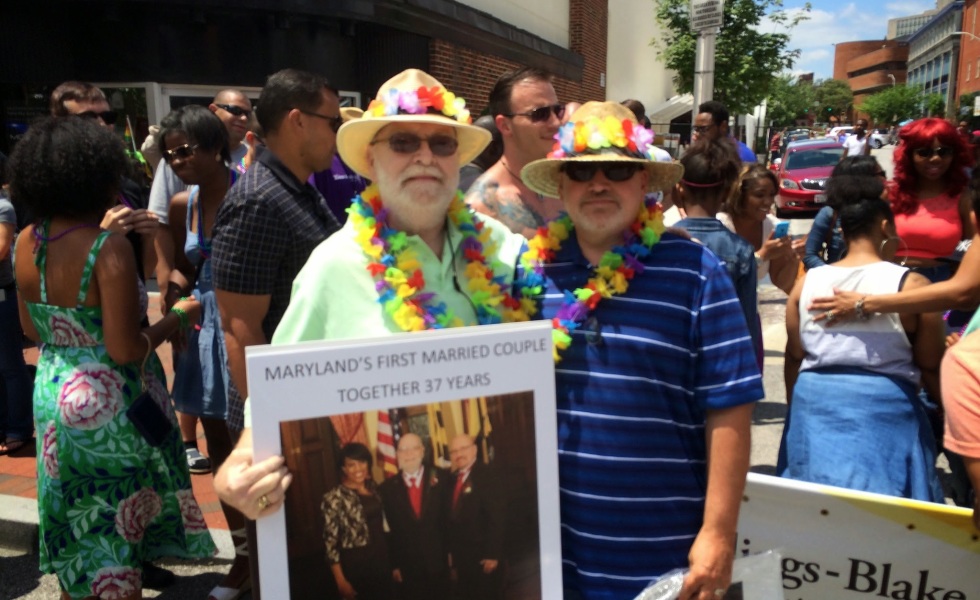The War on LGBTQ+ Kids Is Getting Out of Hand

I don’t remember exactly when I learned that there are people who are sexually attracted to the same sex. Growing up in machismo-rich northern Mexico, I was taught that people (most often men) who were gay were not to be trusted. They were to be shunned, laughed at, and excluded in every way possible. Even at a young age, this attitude confused me because the very same people who were teaching me that behavior would go to church on Sundays and claim to be children of an all-loving God. I started thinking that their love only lasted the time they were in church, or — even worse — that love mean hating people for their behavior even when that behavior affected no one.
The more I learned about biology and science, the better I understood that sexual preference was not a choice. I learned that people who are not “straight” did not choose who they were attracted to any more than I chose who I was attracted to. As I explained to a cousin of mine, “I like petite women with 0.7 waist-to-hip ratios, blue or green eyes, light skin, and long hair. You like more robust women with brown eyes and shorter hair. He [a mutual friend] likes dudes with bulging muscles and a good sense of humor. It’s all a spectrum, my dude.”
When I was in high school, one of my good friends who I had known in middle school was open about his sexuality. He made no effort to hide that he was gay, and even tried out for a position in a cheerleading team that was 100% female. Still, I took offense on his behalf when someone called him gay (or some homophobic slur). “You’re just trying to offend someone who’s clearly bested you,” I said to a girl once. She had called my friend a homophobic slur to me, complaining that my friend had gotten a better test score than she did. “So, if he were straight, you’d be okay with him being smarter than you?” I asked. I didn’t talk to her after that. She was the kind of person who was angry at the world for some reason, and her hate spilled over into hate toward my friend.
Weeks later, I found out she had started a rumor that my friend and I were a couple. I was very angry, and I talked to my mother about it. “Well,” mom asked, “do you feel attracted to him?”
“No,” I said. “You know I like girls,” I emphasized.
“So it’s just another rumor like any other rumor. If there’s no truth to it, there is no need to even address it.”
Shortly after that, we found out that one of my dear cousins was gay. Everyone held him in such high esteem that no one really shunned him… Not to his face, anyway. There was plenty of pearl-clutching from aunts and grandmothers. “Oh, I pray for him every night before I go to sleep, so that he changes his ways before he ends up in eternal suffering,” they would say. Me, having understood the mechanics of the universe and the math intertwined therein, reasoned my cousin had nothing to worry about if — as my personal evidence showed — the universe liked to balance equations. He was not hurting anyone, so no universal harm should come to him.
Of course, we know that non-universal harms do come to LGBTQ+ people. There are plenty of angry and sad people who would like nothing more than to pass on their hurt to people they see as less-than-holy or ungodly. They hide their homophobia in statements like “hate the sin, love the sinner” or “I just want you to not go to hell.” They mean they can’t fathom someone who is not like them, and they would rather the “other” be like them instead of continuing to be themselves.
This particular kind of hatred has now spilled over into the public discourse in the United States. The moral panic of this electoral season is transgender kids and the medical interventions and social protections they need. We know that gender-affirming care is necessary for the mental health of teens with gender dysphoria. Without a support structure that accepts them for who they are, these kids are more likely to turn to drugs and other risky behavior. Worse yet, they are more likely to die from suicide… Or from someone hurting them, as there is nothing worse than a group of people scared to death of something they do not understand.
Now, on top of everything else public health workers have to worry about in this country and around the world, we have to worry about the health and safety of LGBTQ+ people (especially children) because today’s moral panic has pegged them as today’s folk devil. We in public health will probably never know if and when the pandemic ends since we’ll be so busy fighting off the next wave of lies and misinformation.
Sigh.
Thank you for reading.
Check out more of my thoughts over on my Medium.com blog at: https://medium.com/@epiren
Or listen to my ramblings on the Epidemiological Podcast: https://anchor.fm/rene-najera
Stalk me on LinkedIn: https://www.linkedin.com/in/renenajera/
Or be a total creep and follow me on Facebook: https://facebook.com/rene.f.najera
What’s that? I’ve blocked you? Well… ¯\_(ツ)_/¯